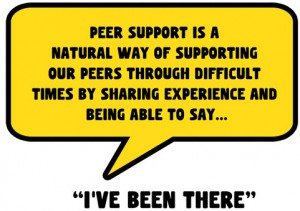This post submission is courtesy of ILFFPS team member Jimmy Nixon
One of the roles a peer supporter has is to check in on their peers when they may be having a challenging time. This is a tough thing to do… for anyone. However, someone has to do it and the responsibility falls on the peer support team. If you, as a peer supporter, do not feel comfortable doing this you can always call ILFFPS for guidance.
Who do you confront?
When we notice someone with changed behavior, isolating themselves more or being more aggressive, feeling hopeless, describing themselves as a burden etc. These are the people that may be dealing with a little extra stress that is coming out “sideways.” These are the people that may benefit from knowing that someone is there to talk to.
How to do it
Timing
- Do not make it obvious that you are confronting them about mental health. Some people are not comfortable talking about their mental health and by making it known to other people you can shut them down really quick.
- While you do not want to make it known to others, there is not always a perfect time to pull someone aside and you do not want to push this conversation off too long.
In-person vs. text/phone call (2)
- Ideally, these conversations work best in person, but if you cannot make that happen a text message or phone call will work.
What to say?
- The important part in this situation is to let the person know they have someone to whom they can talk. Simply pulling this person aside and asking how they are doing may be all they need to feel better.
- If they get defensive, just remind them that you are only there to offer help and to make sure their needs are met (3).
- Sometimes a more direct approach might work.
- “Hey, that call you had last week was really rough. How are you holding up?”
Listen (1)
- If your peer wants to talk, let them. One of the most important tools for a peer supporter is active listening skills.
- One of the worst things we can do is interrupt or try to solve the problem for them.
What Next?
- Remind them of the resources they have available to help them: EAP, ILFFPS, Professional Counselors etc.…
- Follow up at a later time just to check in.
We can do a lot to help our brothers and sisters by relating and validating their feelings. By reaching out to those who might be in need, we might just make someone’s life a little bit better.
References
- “Peer Support Basics” https://www.acep.org/life-as-a-physician/peer-support-project/psp-articles/peer-support-basics/
- “How To Ask Someone is they are ok, when they are clearly not” https://myonlinetherapy.com/how-to-ask-someone-if-they-are-ok-when-they-are-clearly-not/
“How to Ask Someone if They are Ok” https://www.wikihow.com/Ask-Someone-if-They%27re-Okay

